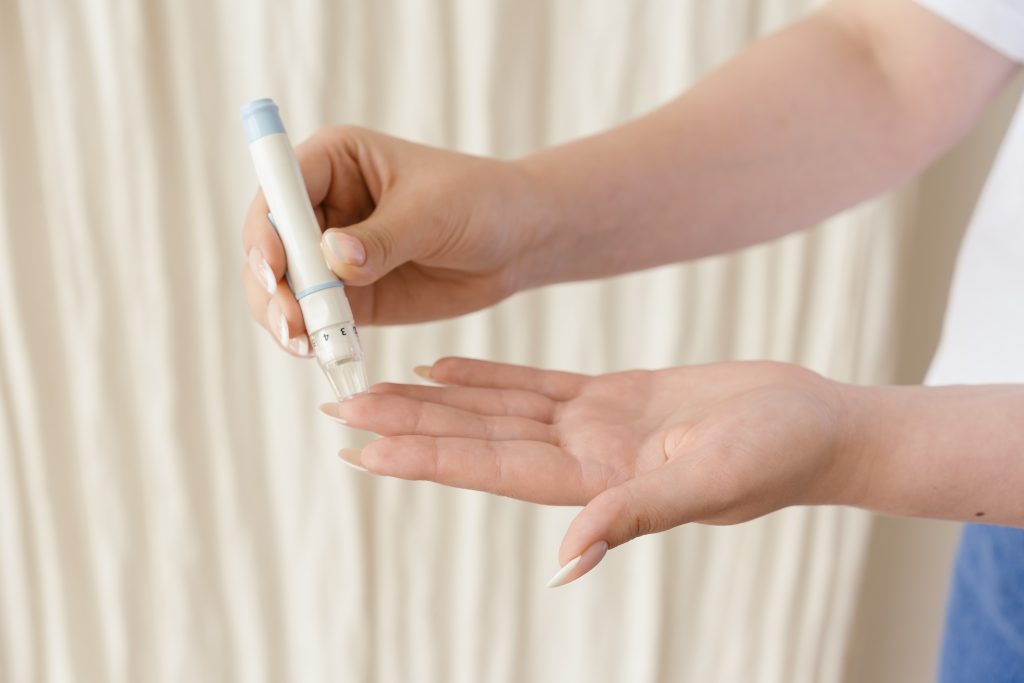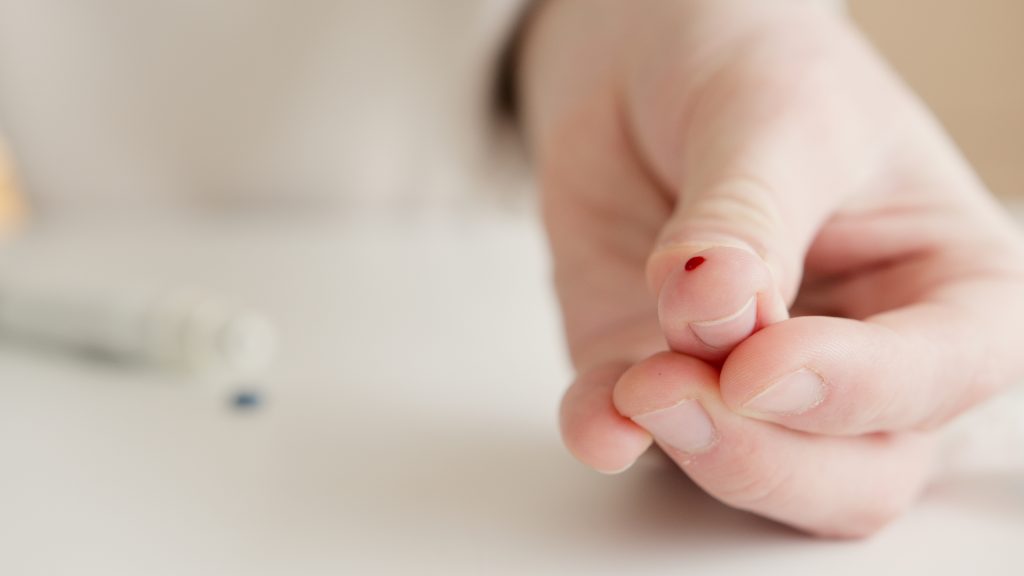Discover the importance of regular cholesterol checks and learn how often you should have your levels monitored.
How Often Should You Have Your Cholesterol Checked?

We all know that a little too much of a good thing can be bad. Take chocolate, for example. A delicious treat, but gobbling down too many bars can lead to unwanted consequences. The same goes for cholesterol. It may play an essential role in our bodies, but having too much of it floating around can spell trouble. That’s why it’s important to keep tabs on your cholesterol levels. But how often should you have your cholesterol checked? Let’s dive in and explore this vital topic!
Understanding Cholesterol and Its Importance
Before we unravel the mystery of cholesterol checks, let’s take a moment to understand this infamous lipid. Cholesterol is a waxy substance that our bodies actually need to function properly. It plays a crucial role in building cells, producing hormones, and aiding digestion.
Cholesterol, although often demonized, is an essential component of our bodies. It is produced by the liver and can also be obtained through certain foods. Without cholesterol, our bodies would not be able to carry out vital functions.
The Role of Cholesterol in the Body
Think of cholesterol as the body’s handy construction worker. It helps build the walls of our cells, keeping them strong and functional. Without cholesterol, our cells would be as unstable as a house of cards!
Furthermore, cholesterol is a key player in producing hormones like estrogen and testosterone. These hormones are responsible for regulating various bodily functions, such as growth, reproduction, and metabolism. So, you can thank cholesterol for keeping those hormones in check and maintaining balance in your body.
Cholesterol also plays a crucial role in aiding digestion. It is a precursor to bile acids, which are essential for the breakdown and absorption of dietary fats. Without cholesterol, our bodies would struggle to digest and absorb the nutrients from the food we eat.
Good Cholesterol vs. Bad Cholesterol
Not all cholesterol is created equal. There are two main types: low-density lipoprotein (LDL) and high-density lipoprotein (HDL). LDL cholesterol is often dubbed the “bad cholesterol” since high levels can lead to plaque buildup in your arteries, increasing the risk of heart disease.
On the other hand, HDL cholesterol is known as the “good cholesterol” as it helps remove excess LDL cholesterol from the bloodstream. Think of it as a superhero, swooping in to save the day by protecting your heart!
It’s important to maintain a healthy balance of LDL and HDL cholesterol in your body. High levels of LDL cholesterol can contribute to the development of atherosclerosis, a condition characterized by the buildup of plaque in the arteries. This can restrict blood flow and increase the risk of heart attacks and strokes.
HDL cholesterol, on the other hand, helps transport excess cholesterol from the bloodstream to the liver, where it can be broken down and removed from the body. This process helps prevent the accumulation of cholesterol in the arteries, reducing the risk of heart disease.
Factors such as genetics, diet, exercise, and overall lifestyle can influence your cholesterol levels. It’s important to maintain a healthy lifestyle, including a balanced diet and regular physical activity, to keep your cholesterol levels in check.
In conclusion, cholesterol is not the villain it is often made out to be. It is an essential component of our bodies and plays a vital role in various bodily functions. Understanding the different types of cholesterol and their effects on our health can help us make informed decisions to maintain a healthy cholesterol balance.
The Impact of High Cholesterol on Health
Hmm, too much of the bad cholesterol in our bodies can wreak havoc on our health. Let’s take a closer look at the consequences of high cholesterol.
High cholesterol is a condition that occurs when there is an excessive amount of low-density lipoprotein (LDL) cholesterol in the bloodstream. LDL cholesterol, also known as “bad” cholesterol, can have detrimental effects on various aspects of our health.
Heart Disease and Cholesterol
When LDL cholesterol levels are sky-high, your arteries may resemble a traffic jam during rush hour. The excess cholesterol can accumulate on the artery walls, forming plaques. Over time, these plaques can narrow the arteries, restrict blood flow, and increase the risk of heart disease.
Heart disease is a serious condition that affects millions of people worldwide. It encompasses a range of cardiovascular problems, including coronary artery disease, heart attacks, and angina. High cholesterol plays a significant role in the development and progression of these conditions.
When the arteries become clogged with plaque, the heart has to work harder to pump blood throughout the body. This increased strain on the heart can lead to various complications, such as heart failure, arrhythmias, and even sudden cardiac arrest.
Furthermore, the restricted blood flow caused by narrowed arteries can result in chest pain, shortness of breath, and fatigue. These symptoms can significantly impact a person’s quality of life and limit their ability to engage in physical activities.
Other Health Risks Associated with High Cholesterol
High cholesterol isn’t just a threat to your ticker; it can also impact other areas of your body. Studies have shown a link between high cholesterol and diseases such as stroke, peripheral artery disease, and even erectile dysfunction. Yikes!
Stroke, like heart disease, is a condition that can have severe consequences for an individual’s health. It occurs when the blood supply to the brain is interrupted or reduced, leading to brain cell damage and potentially long-term disabilities. High cholesterol increases the risk of stroke by contributing to the formation of blood clots and the narrowing of blood vessels in the brain.
Peripheral artery disease (PAD) is another condition associated with high cholesterol. It occurs when the arteries in the legs and arms become narrowed or blocked, leading to reduced blood flow. This can result in pain, numbness, and difficulty walking or performing daily activities.
Lastly, high cholesterol can also affect sexual health. Erectile dysfunction (ED) is a common condition that affects men, making it difficult to achieve or maintain an erection. Research suggests that high cholesterol can impair blood flow to the penis, contributing to the development of ED.
It’s important to note that high cholesterol is a modifiable risk factor, meaning that lifestyle changes and medications can help manage and reduce cholesterol levels. By adopting a healthy diet, engaging in regular physical activity, and following medical advice, individuals can take control of their cholesterol levels and minimize the associated health risks.
Recommended Frequency for Cholesterol Checks
Now that you understand the importance and potential dangers of cholesterol, let’s talk about how often you should roll up your sleeves and have a cholesterol check-up.
Regular cholesterol checks are essential for maintaining good heart health and preventing cardiovascular diseases. By monitoring your cholesterol levels, you can take proactive steps to manage and reduce your risk factors. The frequency of cholesterol checks may vary depending on your age, overall health, family history, and lifestyle choices.
Guidelines for Different Age Groups
Age is just a number, but it can help determine when you should schedule your cholesterol check-ups. The American Heart Association recommends the following:
- For children and young adults: Between the ages of 9 and 11, and then again between 17 and 21. This helps identify any potential genetic or lifestyle-related factors that may contribute to high cholesterol.
- For adults: Starting at the age of 20, it’s generally recommended to have your cholesterol levels checked every four to six years. Of course, this can vary depending on your overall health, family history, and lifestyle choices.
- For adults over 40: Since cholesterol tends to creep up on us as we gracefully age (cue a collective sigh), having a cholesterol test every five years is advised.
It’s important to note that these guidelines are general recommendations, and your healthcare provider may suggest more frequent cholesterol checks based on your individual circumstances.
Special Considerations for High-Risk Individuals
If you’re already waving the red flag of high cholesterol or have other risk factors such as diabetes or a family history of heart disease, it’s crucial to be extra vigilant. Your healthcare provider may recommend more frequent cholesterol checks to ensure everything is in tip-top shape.
High-risk individuals need to monitor their cholesterol levels more closely to prevent any potential complications. Regular cholesterol checks can help identify any changes in cholesterol levels and allow for timely intervention and treatment.
In addition to regular cholesterol checks, high-risk individuals should also focus on adopting a heart-healthy lifestyle. This includes maintaining a balanced diet, engaging in regular physical activity, managing stress levels, and avoiding smoking and excessive alcohol consumption.
Remember, knowledge is power when it comes to your health. By staying informed and proactive, you can take control of your cholesterol levels and reduce your risk of heart disease.
Factors Influencing Cholesterol Levels
Now that we have a grasp on how often to have our cholesterol checked, let’s explore the factors that can influence those cholesterol numbers.
Diet and Cholesterol
When it comes to cholesterol, you are what you eat. Foods rich in saturated and trans fats can send your cholesterol levels soaring. So, it’s best to limit your intake of butter, fatty meats, and full-fat dairy products. Instead, opt for heart-healthy options like fruits, vegetables, whole grains, and lean proteins.
Exercise and Cholesterol
Get your sweat on and show that cholesterol who’s boss! Regular physical activity can help raise HDL (“good”) cholesterol and lower LDL (“bad”) cholesterol levels. So, lace up those sneakers, hit the gym, or dance it off in your living room. Your cholesterol will thank you.
How to Prepare for a Cholesterol Test
It’s getting close to cholesterol check-up time, and you’re wondering what you can do to ensure accurate results. Fear not! We have some simple tips to help you prepare for your upcoming cholesterol test.

Fasting Before a Cholesterol Test
Sorry for the buzzkill, but you’ll generally need to fast for around 9-12 hours before your cholesterol test. This includes avoiding food, beverages (except water), and any medications that may affect your cholesterol levels. But hey, think of it as an opportunity to catch up on beauty sleep or browse adorable animal videos online!
What to Expect During the Test
The cholesterol test itself is a piece of cake (minus the actual cake, since you’re fasting!). A healthcare professional will draw a small sample of your blood – like a tiny vampire, but without the count Dracula outfit. The sample will then be sent to a lab where they’ll measure your various cholesterol levels.
Remember, knowledge is power, especially when it comes to your health. Now that you’re armed with information about cholesterol and how often to check it, you can take proactive steps to keep your levels in check. So, go forth, embrace a heart-healthy lifestyle, and say “see ya later” to any unwanted cholesterol surprises!






